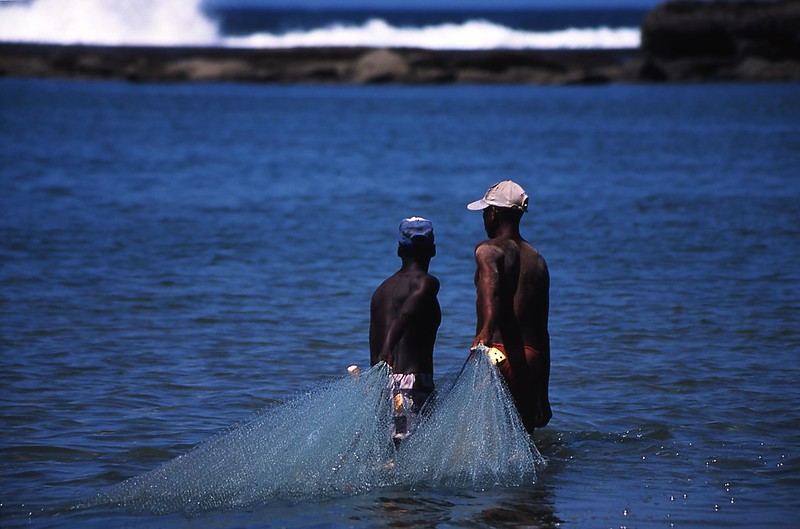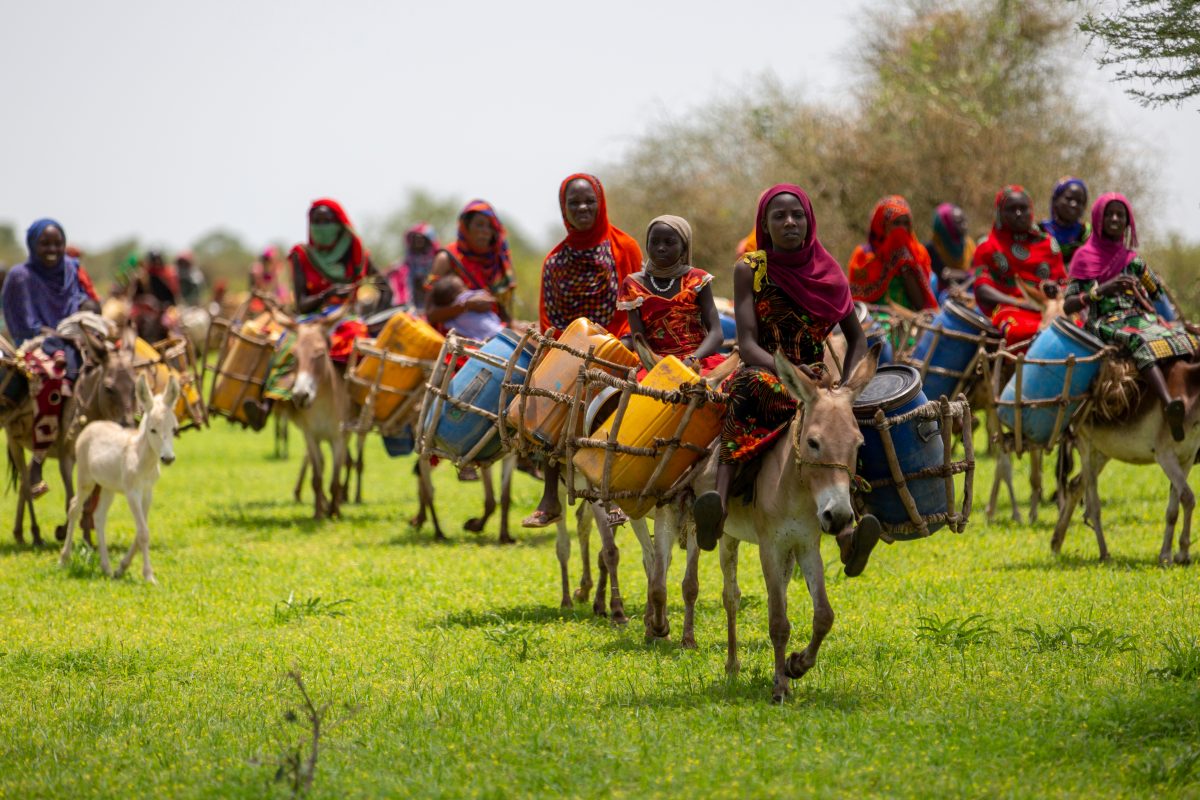A comprehensive understanding of water resources helps manage and preserve Lake Chad
Posted in : Blog on 23 February 2021
Lake Chad is the fourth largest lake in Africa. This rich, tropical Lake with its related wetlands is shared by Cameroon, Chad, Niger, and Nigeria. It is a vital source of livelihood for the thousands of farmers, pastoralists, fishermen, and hunters, who from time immemorial, have adapted to its changing water level and related dynamics. As a food-exporting hub, it plays a crucial role in food security for the region.

The Lake also supports wildlife conservation, with its rich ecosystems within a markedly arid environment. Despite its rich and diverse natural resources, the Lake and its surrounding region is marred by several socio-ecological challenges such as climate variability and hydrological shifts, uncontrolled expansion of large-scale irrigation, pollution, low human development index, limited access to basic services, among others. Even though the region has one of the highest population growth rates in the world, most of its population lives in extreme poverty and insecurity. Delivering basic social services (including water, education, health, infrastructure, and electricity) in the vicinity of the Lake Chad is poor, especially in the rural areas.
Several factors led the Lake Chad Basin Commission (LCBC) request for the Cooperation in International Waters in Africa (CIWA) Program’s support to generate, share and manage knowledge that can contribute to the sustainable, inclusive, and climate-resilient growth and address the existing challenges to cooperative management and development of transboundary waters. This assistance is helping to create a shared understanding of the opportunities, risks, costs, and benefits of cooperative development and management among the different stakeholders. CIWA firmly believes that water security and cooperation around shared water resources can drive peace and prosperity in the region.
Rallying international support through the Climate Resilience Action Plan
CIWA’s support to the LCBC started in July 2015, when the Commission asked CIWA to assist them in developing the Lake Chad Development and Climate Resilience Action Plan (LCDAP). The Action Plan was developed with several partners including CIWA. It was part of the World Bank’s USD 16 billion Africa Climate Business Plan, which was presented at the COP21 conference in Paris.

The plan describes cross-cutting investment needs in the lake area while also shedding light on some of the current gaps in our understanding of the Lake’s dynamics, especially its significant variations in size over different time periods and their implication on the Lake’s ecosystem. It highlights how rainfall is the main determinant of Lake size, but its prediction is increasingly uncertain under future climate scenarios. The plan also highlights the Lake’s vulnerability to multiple threats—increased evaporation due to climate change, large-scale irrigation, and expansion of the oil industry, among others.
Since 2015, several development partners have been financing different parts of the Plan, generating investments of up to USD 1 billion to help restore and strengthen the productive base of the area, thus, improving livelihoods of 2 million people living around the shore, and ensuring food security for 13 million living within the 300-km range of the Lake. This ten-year plan aims to transform Lake Chad into a regional rural development hub by sustainably improving livelihoods and building the resilience needed to live on the Lake shores.
Integrating groundwater data and knowledge
CIWA has also been involved in efforts to better monitor and understand water resources dynamics in the Lake Chad area, as a deep and continuous understanding of water resources based on data and knowledge forms the basis of informed decisions. CIWA, through its support on technical assistance activities in the region, is promoting an evidence-based approach to help arrive at decisions around shared water resources at the basin-level to alleviate poverty, build climate resilience, and mitigate fragility, conflict, and violence while protecting and preserving the precious resources.
More recently, CIWA provided support for characterizing the groundwater in the Lake Chad basin. A preliminary groundwater flows model was built, to offer a first global representation of the aquifer system within the Lake Chad Basin, and though still initial, can pave the way for running water use scenarios in the future. CIWA supported the integration of a broad range of available groundwater-related data in the Lake Chad Basin into a single up-to-date database, by bringing together a broad range of actorsfrom academia, national development agencies, member states agencies, LCBC and others.
The results of this ground-breaking work have helped in elaborating the necessary comprehensive understanding of the Basin’s water resources that will enable LCBC to manage groundwater and manage water use abstractions more sustainably.


